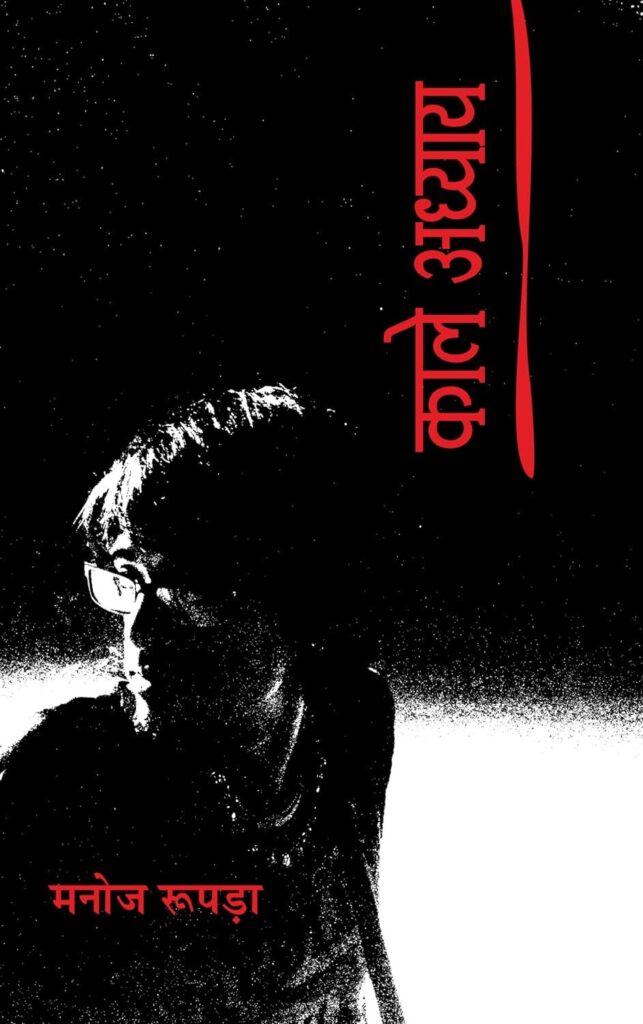Rahul Vishnoi reviews I Named My Sister Silence by Manoj Rupda, translated from Hindi by Hansda Sowvendra Shekhar (published by Eka, 2023).
First things first. I Named My Sister Silence is a hard-hitting book that doesn’t cushion its punches. Read it when you are at your finest mental health. Rupda has not pulled any punches in showing brutality, both physical and mental, and a reader would be remiss in their duty if they didn’t read the book in a state of complete mental awareness and fitness.
Exploring Loss and Grief
What is the degree of loss? How much of it is enough to break someone’s character and cast the person into a new mould, splitting their soul into two? Is the loss of something grand and larger than life more than the loss of something, say, the voice of your own sister or abandonment by your friend and guide? These are the questions that I Named My Sister Silence by Manoj Rupda asks in a short but harrowing 180 pages.
No. The answer to the aforementioned question is no. The loss of something big affects you equally, as does the loss of something tiny. Not knotted by boundaries, grief is free to assert its devastating effect on the sufferer.
Narrative Style and Themes in I Named My Sister Silence

Published in Hindi as Kaale Adhyay and translated into English by Hansda Sowvendra Shekhar, I Named My Sister Silence was shortlisted for the Atta Galatta BLF Book Prize and The JCB Prize. This book has one of the most appealing prologues:
“It hurts differently to watch something immense and majestic fall lifelessly to its knees and be taken apart by powers beyond its control. Like a ship being dismantled by cutting machines and cranes. Like an elephant being eaten alive by wild dogs. Like a forest being mined and ravaged by corporates. It hurts much the same way to be left alone.”
I Named My Sister Silence is many books combined into one. It begins and looks like a devastating horror novella with allegories of the destruction of forest land and resources in Bastar. It also works as a sort of coming-of-age novel since the event of the death of an elephant irreversibly changes the persona of the boy-author. It is equally effective as a memoir since many events are loosely inspired by Rupda’s life. This could also be a treatise on the climate change wrought by the humans upon themselves.
A Haunting Depiction of Reality
I Named My Sister Silence initially caters to the protagonist’s early life: his difficult childhood, especially his relationship with his evil stepmother. His sister Kako is the only person who provides for him by picking tobacco leaves from the jungle and paying for his education. The latter half of the story focuses on how Kako gets into the Naxalite movement. The writer puts the limelight on how the parts of central India are being subjected to excessive capitalism and a police-politician-goon nexus. The book particularly pulls the atrocities committed upon Adivasis by the capitalists and corrupt politicians into the limelight. The translator (The Adivasi Will Not Dance) and writer are alike in this manner.

The part where a majestic elephant is felled by ferocious wild dogs is frightening. The dogs bite into its hind legs as the author, in his boyhood, watches from a tree top. Who says horror needs ghosts? Destruction of one’s own land and persona works equally fine. This part is so atmospheric that I could feel myself getting transported to the forest lands of Bastar, sitting atop an elephant and witnessing its fall.
The issue of Maoism in these parts has been in the limelight for a long time. Rupda effectively captures the stripping of resources and illegal mining in his metaphor for the destruction of the elephant.
Some time later, though, the elephant turned silent. It lowered its trunk and stopped trying to free its legs from the grip of the wild dogs.’ The villagers, victims to land and mine mafia and corrupt officials have no option but to give up.
– Manoj Rupda, I Named My Sister Silence
Rupda captures the essence of the destruction of land in these lines:
The first thing the boy saw upon waking up was the head of the elephant. Its neck had turned to one side. Its eye was open and frozen, and two crows were taking turns with their beaks. The lower part of the elephant’s body had been claimed by kites, vultures and more crows. Its belly was torn open and two hyenas had sunk into it, digging and eating. After some digging, the hyenas left, dragging huge chunks of meat with them. Apart from the larger scavengers, there were also smaller ones, like ants of various kinds. The elephant had voluntarily provided food for a good part of the forest.
– Manoj Rupda, I Named My Sister Silence
When the boy-author, after spending two days alone in a dense forest, reaches home, he’s appalled by the fake show of grief and cry by his family members. Something in him has shrivelled and died, and out of its remains rises a new person.
When I grew up, I came to know that there were two humans growing within me: one, who was fascinated by everything big; and the Other, who accepted every destruction as easily and without any thought as an animal.
– Manoj Rupda, I Named My Sister Silence
The translation by Hansda Sowvendra Shekhar is fluid and doesn’t leave a detail from the original. It’s crisp yet simple, marking a symphony between the two languages: Hindi and English.
Favourite Line from I Named My Sister Silence by Manoj Rupda
Although there is no dearth of fine words in Rupda’s works, these lines particularly stayed with me:
Do we all get what we deserve? Is it that simple?






















